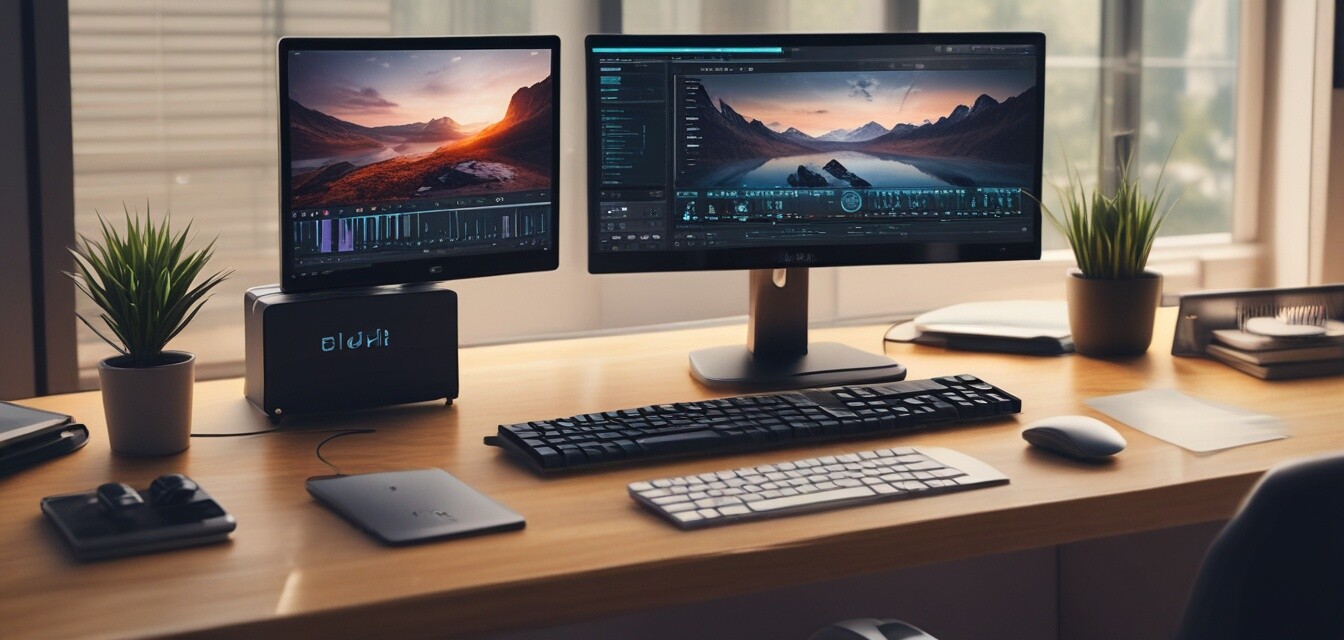
Workstation vs. Laptop: Which Should You Choose?
Key Takeaways
- Workstations excel in performance and expandability, making them suitable for heavy tasks.
- Laptops offer portability and convenience, making them ideal for users on the go.
- Consider your specific tasks - high-end graphics or processing power vs mobility and battery life.
- Budget can greatly influence your decision as workstations typically have a higher price point.
Choosing between a workstation and a laptop can be a tough decision for many professionals. With the diverse range of tasks and projects people engage in, understanding the core differences between these two types of devices is essential. This article will help you weigh their strengths and weaknesses so you can make an informed choice.
Understanding Workstations
A workstation is a high-performance computer designed for technical or scientific applications. They are often more powerful than regular PCs and are equipped with specialized hardware to handle demanding workloads.
- Performance: Typically equipped with high-end CPUs and GPUs, more RAM, and faster storage options.
- Expandability: Workstations provide multiple slots for additional graphic cards, RAM, and storage drives.
- Cooling Systems: Enhanced cooling systems to manage the high heat output of intensive tasks.
Pros and Cons of Workstations
Pros
- Superior performance for resource-intensive applications.
- Highly customizable to meet specific professional needs.
- Better reliability and stability for long working hours.
Cons
- Bulkier and less portable than laptops.
- Usually more expensive than laptops with similar specifications.
- Requires a dedicated workspace.
Understanding Laptops
Laptops are compact and portable computers, designed for general use. They combine all essential components of a desktop PC into a single unit, making them convenient for everyday tasks.
- Portability: Lightweight and easy to transport, making them perfect for travel.
- Battery Life: Laptops come with rechargeable batteries, allowing for use without being tethered to a power outlet.
- User-Friendly: Ideal for casual users and quick tasks without the need for extensive configuration.
Pros and Cons of Laptops
Pros
- High convenience and flexibility for professionals on the go.
- Affordable options available across various budgets.
- Ease of use without the need for complex setups.
Cons
- Limited performance for high-end applications compared to workstations.
- Less expandability for upgrades.
- Potentially shorter lifespan due to portability and wear and tear.
Comparison Table
| Feature | Workstation | Laptop |
|---|---|---|
| Performance | High-end CPUs and GPUs | Varies; generally not as powerful |
| Portability | Not portable | Highly portable |
| Price | Higher price point | Wide range of prices |
| Expandability | Highly customizable | Limited options |
| Battery Life | Not applicable | Varies; typically 4-10 hours |
Which one is right for you?
The right choice between a workstation and a laptop largely depends on your specific needs and professional requirements. Here are some key considerations:
- Your Work Type: If your work involves heavy graphic design, 3D modeling, or large data analysis, a workstation is likely your best bet.
- Budget: If you are on a tight budget, consider laptops that provide good performance for the price.
- Mobility: If you travel frequently or work from multiple locations, a laptop will be more beneficial.
Final Thoughts
The decision between a workstation and a laptop should be guided by your individual professional needs. If your tasks are demanding and require high performance, a workstation may be the ideal choice. On the other hand, if you value portability and versatility for everyday tasks, a laptop might serve you better.
Don’t forget to check our Buying Guides for more insights on laptop options, desktop PCs, and tailored advice suited to your specific requirements.